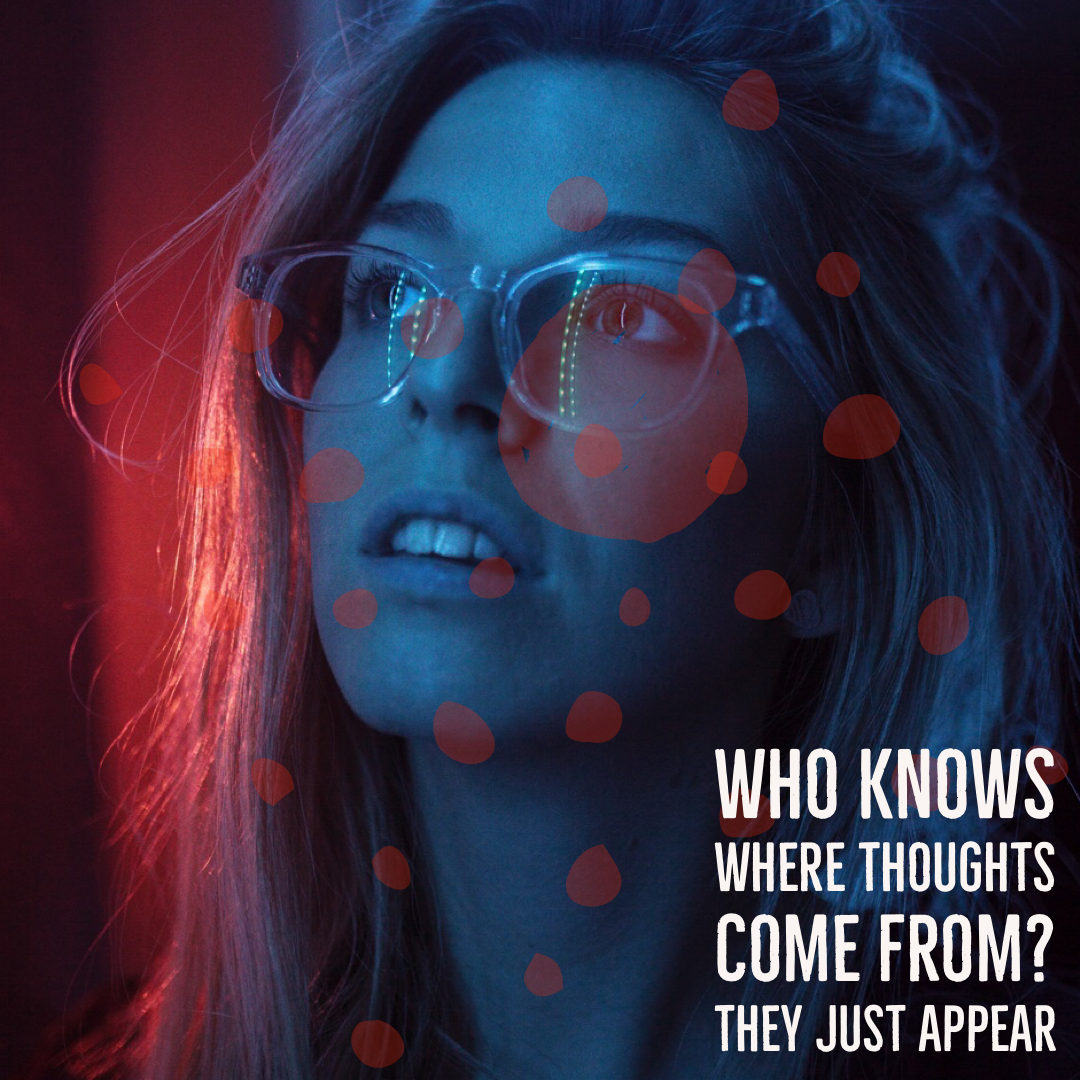Who Knows Where Thoughts Come From? They Just Appear
Evidence has suggested that mental imagery can accelerate learning and improve the performance of all sorts of skills. In a classroom, mental imagery can be especially important for reading comprehension and learning word meanings. Mental imagery can also help students and people in general grasp abstract concepts and ideas. But what about you?
When you close your eyes, what do you see? Can you picture a sliced apple sitting on a blue plate? What does the apple look like? What color is it? Do you know the type of apple that it is? What details can you pull from that image in your mind? What about when you imagine your mother's face? What is her expression as you look at her? Where is she located, what is she doing? How about your last vacation, staycation, or trip? Can you picture the room where you stayed? Do you remember that awful painting on the wall, what did it look like? It may surprise you, but some people, when asked to recall similar information, can't do it, and it is an impossibility.
Unfortunately, I am one of these very special people with a broken visual cortex. I discovered this soon after I started meditating. Some of the guided meditations I listened to would instruct me to close my eyes and imagine a ball of light hovering over my body. Or others would suggest picturing a sunset or a sandy beach with crystal clear blue water. However, every time I closed my eyes to imagine these things, all I would see was a black void. I saw complete darkness with a mix of light periodically if my eyes started to squeak open. I was never able to imagine the sandy beach, but I have seen one before, so I have a memory of what it is supposed to look like. I have seen pictures showing these surreal beach landscapes, but I cannot pull that same image in my head. When I was a kid and couldn't sleep, I would follow the age-old wisdom of counting sheep, but I thought this was a metaphor all this time.
Today, neurologists refer to this inability to form mental images as "congenital aphantasia" – from the Greek words "A", meaning "without," and Phantasia, meaning "a capacity to form mental images." Neurologists estimate that about 2 to 2.5 percent of the population has little or no visual imagery.
I asked friends about their lives, and everyone had a positive experience with visualization. I started to wonder why I was "special" in this situation, so the research began. I learned that back in the 1880s, a study was conducted by Francis Galton, who was a Victorian polymath (a person of wide-ranging knowledge or learning) at the time. He published a paper on mental imagery and discovered that a small number of people couldn't visualize. A hundred-plus years pass with little to no mention of this. In 2015 a cognitive and behavioral neurologist at the University of Exeter named Prof Adam Zeman coined the term Aphantasia after a referred patient of his had "lost" his visual imagery after a heart operation.
Zeman believes that Aphantasia may have gone nameless and unstudied for so long because it isn't necessarily a problem. It could hinder drawing objects from imagination, and visualization strategies cannot be used for memorizing. But people are resilient and have found other ways to adapt to this issue by using words or symbols instead. like having a good "mind's ear" or "mind's nose" instead of a "mind's eye."
I joke about being unique and one of a kind because I can't visualize people's faces, which is why I am so appreciative of the selfies. However, the reality is that we are all unique, and no one will ever be like you. The mold was literally broken when you came into this world. You were given a once in a lifetime combination of mind, body, and soul that no one else will ever possess. You may not think you are exceptional, but you are. You may look at yourself in the mirror and completely bash yourself. You might ask what do I have to offer the world, my relationship, or this job. Do you know who you talk with the most? You may say your spouse, your significant, your family, or your friends. But the reality is that you speak to yourself the most. You are always in some form of conversation with yourself, and your mind isn't always nice.
Celebrate the awesomeness that is you today and be proud of your uniqueness. Celebrate your inspirations, your skills, your thoughts, and your desires. Never compare yourself to others in terms of beauty, money, or talents. Every single one of us has something to share, no matter how insignificant you may find it. We have the potential to do many things in this life and in this world, that has never been done before.

